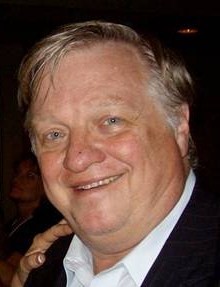- How To Write A Resume
- Resume Examples
- Resume Tips
- Resume Tips
- Best Resume Writing Services
- Things To Avoid On A Resume
- Resume Paper To Use
- What To Include In A Resume
- How To Write A Bio
- How To Write A Personal Statement
- Lied on Your Resume?
- Resume PDF
- Avoid Age Discrimination
- Words and Phrases You Shouldn't Include in Your Resume
- How Many Skills Should You List On A Resume
- Send A Resume As A Pdf
- Resume Critique
- Make A Resume Stand Out
- Resume Spelling
- Resume Past Or Present Tense
- How To List Projects On A resume
- Best Resume Action Words
- How To Quantify Your Resume
- Resume Bullet Points
- Are Resume Writers Worth It
- How Many Jobs To List On Resume
- Resume Vs CV
When you’re applying for a job, you often only have seconds to impress a hiring manager. Whether this is in a resume, cover letter, or interview, the words you choose matter, as you often don’t get to use many of them to explain what you bring to the table.
In this article, you’ll find examples of power words you can use to describe yourself to make the best impression possible in the shortest amount of time. You’ll also learn how to incorporate these into your resume, cover letter, and interview answers.
Key Takeaways
-
You can use action verbs, industry-specific skill words, and powerful adjectives to describe yourself in resumes, cover letters, and interviews.
-
Stay away from buzzwords, slang terms, and hyperbolic descriptors.
-
Incorporate keywords from the job description into your resume and cover letter in order to get past ATS filters and to a real person.

The Best Words to Use to Describe Yourself
When you’re describing yourself in a resume, cover letter, or interview, there are a few types of power words you can work in. These include:
-
Action verbs
-
Industry skills
-
Adjectives
We’re going to provide you with examples of all three of these types of words.
-
Action Verbs
Do you want to be Joe Schmoo or do you want to be a celebrity in your field? The words you use on your resume and cover letter make all the difference.
If you want your resume to have more impact, you need to use action verbs. What is an action verb you wonder? Action verbs describe what the subject of a sentence is doing.
For example instead of saying “Responsible for planning and holding weekly meetings.”
Use a more powerful action verb, “Arranged and organized weekly team meetings.”
Responsible for is very weak. It doesn’t show your strengths.
Arranged and organized are strong, action verbs that show you achieved something worthy.
Here are some ordinary verbs and some compelling ways to power them up.
-
Cut costs: decreased, streamlined, economized, reduced expenses, controlled costs
-
Led: orchestrated, conducted, directed, spearheaded
-
Created: designed, crafted, developed, formulated, conceptualized
-
Boosted: increased, accelerated, drove, improved, optimized
-
Improved : advanced, enhanced, increased, strengthened
-
Trained: facilitated, educated, instructed, taught, guided, coached
-
-
Industry Skill Words
Start by thinking about the industry you are in. These words are a list of skills and experiences employers are seeking.
Here are a few examples:
-
Sales: relationship building, negotiation, persuasive communication, prospecting, closing, territory development
-
Management: leadership, supervisory skills, coaching, mentoring
-
Marketing: SEO, conversion optimization, email marketing, content marketing
-
Accounting: taxation compliance, automatic data processing (ADP), reconciliation, accounts payable, accounts receivable, return on assets
-
Project managment: budget management, proposal writing, compliance, vendor management, risk mitigation
-
Administration: attention to detail, creating macros, confidentiality, Microsoft Office suite, scheduling
-
Engineering: quality control, troubleshooting, materials management, research and development, systems integration
-
Web development: graphic design, user experience, ecommerce, web design, front end/back end, Java, HTML/CSS
Finding these industry-related keywords is easier than you think. Just do a quick Google search for the job openings in that industry. Read the job descriptions and look for any keywords that stand out. Jot down any that describe the qualifications and skills that you have.
Or, even better, identify keywords from a specific job description. Then include these keywords in your resume. When you know what your potential employers are looking for, it’s easy to reverse engineer your resume to show you are a perfect match for their needs.
-
-
Powerful Adjectives
When you are writing your resume you want to come across as a rock star, but not sound like a commercial. You need to strike that perfect balance between strong and enticing and blatantly promotional. Choosing the right adjectives for your resume summary statement and the body of your resume will help you find that sweet spot.
Employers are looking to attract and retain top talent. Leadership shows that you have initiative and can drive results for their organization.
You don’t want to use the word leadership over and over. You want to vary it a bit. Here are some words to describe your leadership qualities. Below are a couple of examples.
Leadership Adjectives:-
Authoritative
-
Decisive
-
Dedicated
-
Engaged
-
Goal-Oriented
-
Strategic
-
Motivated
-
Innovative
-
Delegation
Teamwork Adjectives
-
Determined
-
Reliable
-
Deadline Driven
-
Detail Oriented
-
Communication Skills
-
Organized
-
Collaborative
-
Cross-functional
-
Team-player
If you are having a hard time thinking of the right word to use, a thesaurus can be a huge help. For example, if you don’t want to say “write” for the 3rd time, you can find other words like develop, craft, and create to mix it up.
-
Resume Killing Phrases to Avoid
You know the feeling you get when your parents try to use phrases to be cool? Like when your mom is hanging out with you and your friends and says something is “sick”. It’s kind of icky, inappropriate, and disgusting. That’s how hiring managers feel when you use buzzwords on a resume.
Are resume buzzwords worth it? Many of these phrases were cool in their day, but now, these cliches have seriously lost their staying power and it’s time to retire them.
Are you guilty of using any of the following outdated terms?
Here are the resume buzzwords and things to avoid putting on a resume.
| Buzzword | Alternative |
|---|---|
| Guru | Expert |
| Thought Leader | Authority |
| Dynamic | Powerful/Assertive |
| Laser-focused | Attentive/Sharply Focused |
| Wheelhouse | Areas of expertise/zone of genius |
| Growth Hack | Guerilla marketing |
| Think Outside the Box | Creative problem solving |
| Game-Changing | Tipping point |
| Deep Dive | In-depth analysis |
| Move the Needle | Significantly impact |
If you don’t want to make recruiters cringe, explain what you mean in engaging conversational language. Don’t lean on these overused terms.
How to Incorporate Power Words Into Your Resume
The devil they say is in the details. After you write your resume take time to carefully review it. The little touches you add can help your resume and cover letter to really shine. Do your research to find important keywords for your industry. Add strong verbs and compelling adjectives.
You should also actively scan for buzzwords that you can eliminate. Then, make sure it’s ATS-friendly.
Follow these steps and you’ll have a job-winning resume in no time flat.
And with your great list of words to describe yourself fully prepared, you’ll be able to walk into an interview ready to paint yourself in the best light possible. Isn’t it amazing how powerful words are in the job search process?
Tips For Using Power Words in Your Resume
-
Be concise. Short pithy sentences beat longer sentences. Simple direct sentences have more power.
-
Keep bullet points to one line. Try not to have bullet points wrap around. Shorten them to one line if possible.
-
Eliminate any widows. A widow is a single word that is wrapped around and is alone on the next line. Don’t do this
Spearheaded initiative to go green and eliminate delivery truck gas emotions by August
2021 -
Include ATS friendly words.
You may have the best resume in the world, but if your resume is not ATS-friendly, it may never be seen by the potential employer. ATS stands for applicant tracking system and is the robo filter that companies use to handle large amounts of resumes — you need to make it past the filter to be seen.
If you want to get your resume seen, you’ll want to include the right ATS keywords. You write resumes both for people and for the applicant tracking system. Many bigger companies scan and search through resumes pulling top applicants to the top. If your resume doesn’t make it through the ATS system, it may never be seen by a recruiter or hiring manager.
The keywords that the ATS system checks for are determined by the future employer. That’s why it’s important to closely read a job description, look for keywords, and include these keywords in your resume.
Job-seekers: if your resume is a match for the criteria, it will be passed through for viewing.
If your resume is not a match for the criteria, then it will be rejected.
How to Incorporate Power Words Into Your Cover Letter
What’s your opening line? A clever pick-up line has the power to impress someone you want to meet at your favorite nightclub. The same is true of an opening line on your cover letter.
You want to grab the attention of the hiring manager so that they keep on reading.
Start the cover letter with a greeting. It’s always best to get the hiring person’s name rather than using the Dear Hiring Manager as an opener.
Tell your employer what position you are applying for in the first sentence and where you saw the job listing.
In the body of the cover letter, you’ll want to highlight your top accomplishments and relevant experience for this position that enable you to succeed in this role. Don’t just rehash everything on your resume. Use this space to share your personality, passions, and how you can make a difference at their company.
Share a call to action in the last paragraph and how and when you can move forward to further discuss your qualifications for the role.
Sign the letter “Sincerely” and your name.
How to Incorporate Power Words Into Your Job Interview Answers
Hiring managers want to know how your skills and experiences can translate into results for their company. But fluffy self-flattering words don’t carry much weight. They are listening for traits that will make a difference for their bottom line.
Here are some powerful words and phrases to use during your job interview.
-
Explain how you took leadership in your previous positions.
-
Tell them the measurable results you achieved in your accomplishments.
-
Reveal projects where you took initiative.
-
Share what makes you passionate and motivated about your work.
-
Tell them about any management and supervisory job experience you had.
-
Add examples of where you led strategy or planning for a project.
-
Tell about situations where you influenced, persuaded, or negotiated.
-
Show them where you have been a team player and collaborated.
-
Discuss how you resonate with the company values and culture to show you are a fit.
How to Answer “How Would You Describe Yourself” at a Job Interview
When you’re writing your resume and cover letter, you have a major advantage. You can look at the job description and conduct research on the company and role to perfectly optimize your word choice.
In an interview, you don’t have that luxury. However, it’s a good idea to become so familiar with the job posting that your ability to use keywords from it is instinctive and automatic.
Here’s a step-by-step process for answering “how would you describe yourself?”
-
Get to the point and stay relevant. It can be easy to go off on a tangent when this question comes up. Get straight to the point and give one or two personality traits that showcase the professional skills you feel the employer values most.
-
Be honest. Of course, it’s not just about telling the interviewer what you think they want to hear. You’re not doing anyone any favors by lying about your personality or work style. Answer honestly so that both you and the hiring manager can decide whether the job is a good fit for you.
-
Pick universally likeable traits. Words like “authoritative” or “tolerant” might be positive to some, but others might read negative traits into them. Instead, stick with personal qualities that everyone can agree are positive, like “collaborative,” “curious,” or “diligent.”
-
Give context. This is the most important part of your answer. It’s not enough to simply rattle off a few adjectives and call it a day. The interviewer will appreciate a story in which the descriptive words come to life.
For example, if you describe yourself as persistent, describe a professional situation in which your persistence paid off with fantastic results.
Example Answers to “How Would You Describe Yourself?”
-
Example Answer 1: Team Player
I would describe myself as a team player who always puts big-picture objectives over personal gain. When I was working on a design project with other graphic designers, we realized late in production that there a number of small, difficult-to-ingrain elements that we failed to implement. While it was a group mistake, I took up the extra work to make sure that the other designers could start work on the client’s next project. That client ended up being impressed with our attention to detail and remains a customer to this day.
-
Example Answer 2: Persistent
Persistence is what sets me apart. When I had a dream for a social media marketing campaign, I worked tirelessly at it. For months, we saw no traction as posts went un-shared and engagement was rock bottom. While I was by no means an expert on this part of digital marketing, I made it a goal to seek out advice and study up on best practices. After six months and countless trials and errors, I was able to earn us over 15,000 subscribers and engagement had gone up by over 1000%. When I know an idea is a winner, I’ll stop at nothing to make it a reality.
-
Example Answer 3: Creative
My biggest asset is my creativity, and it’s a word my former supervisor used to describe me a lot. We once had a project that involved coding multiple landing pages with similar assets. When I saw that this was going to be a long-term project, I took a few hours to write a Python script that could automate a lot of the grunt work while ensuring consistency. Nobody had approached the problem that way or indicated that this was a possible solution, but my manager was impressed. She credited this creative idea as saving over $10,000 in hours of labor.
-
Example Answer 4: Organized
As an executive assistant, I find that organization is the trait the defines me in my professional life. When you have a boss who handles dozens of client accounts worth over $1M, you need to make sure that each and every client is receiving the attention they need, when they need it. By creating a master spreadsheet that included all important information, and condensing that master list into highly readable notes for the VP of sales, I was able to streamline client meetings and account management.
FAQ
-
How do you describe yourself in a resume?
You describe yourself in a resume by using action words, industry-specific skills, and powerful adjectives throughout it. By making the most of the words you use to describe your goals and accomplishments, you can give hiring managers a solid understanding of who you are and what you’re about.
-
What are three words to describe yourself for a job?
Three words to describe yourself for a job are “motivated,” “reliable,” and “strategic.” There are plenty of other words out there to describe you as well, but these are likely to please almost any employer (just make sure they actually describe you before you use them).
-
How can I describe myself in one word?
You can describe yourself in one word by choosing a word that can be applied to you in many situations. For example, “tenacious” and “positive” are both words that you can exemplify in a variety of settings.
If you’re describing yourself in one word for a job interview, try to choose a word that also aligns with the company’s and position’s goals and requirements.
Ask the Experts
What tips would you give to optimize a resume?

Bill Gutches
The Path To Inkc
In an Overview or Value Proposition, use power verbs to start each bullet or statement and be sure to quantify the amount of benefit your client / employer received as a result of your work.
Make sure the Start and Stop dates for each Employer or Contract are contiguous: that there are no gaps in the work timeline.
Create a unique resume with appropriate key phrases for each application so that the words in the resume match as closely as possible to the job description you are applying for.
- How To Write A Resume
- Resume Examples
- Resume Tips
- Resume Tips
- Best Resume Writing Services
- Things To Avoid On A Resume
- Resume Paper To Use
- What To Include In A Resume
- How To Write A Bio
- How To Write A Personal Statement
- Lied on Your Resume?
- Resume PDF
- Avoid Age Discrimination
- Words and Phrases You Shouldn't Include in Your Resume
- How Many Skills Should You List On A Resume
- Send A Resume As A Pdf
- Resume Critique
- Make A Resume Stand Out
- Resume Spelling
- Resume Past Or Present Tense
- How To List Projects On A resume
- Best Resume Action Words
- How To Quantify Your Resume
- Resume Bullet Points
- Are Resume Writers Worth It
- How Many Jobs To List On Resume
- Resume Vs CV





